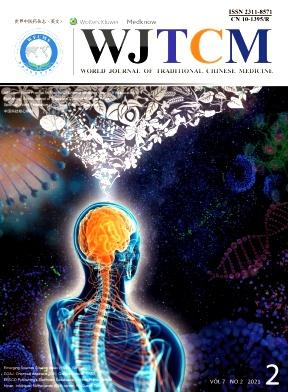Network pharmacology-based and pharmacological evaluation of the effects of Curcumae Radix on cerebral ischemia–Reperfusion injury
IF 3.2
3区 医学
Q1 INTEGRATIVE & COMPLEMENTARY MEDICINE
引用次数: 0
Abstract
Objective: This study aimed to investigate the network pharmacology of curcumae radix (CR, Yujin) and explore the mechanism of CR in the treatment of cerebral ischemia–reperfusion injury (CIRI). Materials and Methods: Network analysis and pharmacological evaluation were performed to explore the protective role of CR to treat CIRI. The potential target genes of the active components and CIRI were identified using SwissTarget Prediction, Bioinformatics Analysis Tool for Molecular mechANism of Traditional Chinese Medicine, GeneCards, and Online Mendelian Inheritance in Man. Furthermore, network analysis was performed using Cytoscape software. Gene ontology analysis and Kyoto Encyclopedia of Genes and Genomes enrichment analysis were performed using the R software. In vivo experiments were performed using the water extract of CR (WECR) on PC12 cells induced by hypoxia/reoxygenation (H/R) to simulate ischemia/reperfusion injury. Results: The results exhibited that 21 active compounds identified in CR were associated with 73 targets of CIRI. Functional analysis showed that multiple pathways, including response to stress, regulation of apoptotic process, and hypoxia-inducible factor 1 signaling pathway, were significantly enriched. In addition, STAT3, IL4, HIFIA, and CTNNB1 were predicted to be the most important genes among the 36 hub genes. Furthermore, WECR treatment significantly improved PC12 cell injury and decreased apoptosis levels in cells induced by H/R, with malondialdehyde contents reduced and superoxide dismutase or glutathione peroxidase levels increased. Conclusions: Network analysis and pharmacological evaluation of CR could provide valuable directions for further research on CR and improve comprehension of CIRI.基于网络药理学的姜黄对脑缺血再灌注损伤的影响及药理评价
目的:研究郁金的网络药理学,探讨郁金治疗脑缺血再灌注损伤的作用机制。材料与方法:通过网络分析和药理学评价,探讨CR对CIRI的保护作用。利用SwissTarget Prediction、中药分子机制生物信息学分析工具、GeneCards和人类在线孟德尔遗传对活性成分和CIRI的潜在靶基因进行了鉴定,并利用Cytoscape软件进行了网络分析。使用R软件进行基因本体论分析和京都基因和基因组百科全书富集分析。使用CR水提取物(WECR)对缺氧/复氧(H/R)诱导的PC12细胞进行体内实验,以模拟缺血/再灌注损伤。结果:CR中鉴定的21个活性化合物与73个CIRI靶点相关。功能分析显示,包括应激反应、凋亡过程调节和缺氧诱导因子1信号通路在内的多种途径显著富集。此外,STAT3、IL4、HIFIA和CTNNB1被预测为36个枢纽基因中最重要的基因。此外,WECR处理显著改善了H/R诱导的PC12细胞损伤,降低了细胞凋亡水平,丙二醛含量降低,超氧化物歧化酶或谷胱甘肽过氧化物酶水平升高。结论:CR的网络分析和药理学评价可为CR的进一步研究和提高对CIRI的理解提供有价值的指导。
本文章由计算机程序翻译,如有差异,请以英文原文为准。
求助全文
约1分钟内获得全文
求助全文
来源期刊

World Journal of Traditional Chinese Medicine
Medicine-Complementary and Alternative Medicine
CiteScore
5.40
自引率
2.30%
发文量
259
审稿时长
24 weeks
 求助内容:
求助内容: 应助结果提醒方式:
应助结果提醒方式:


